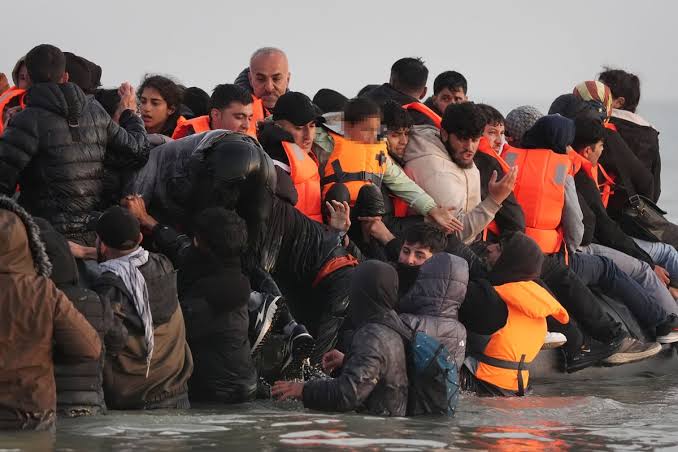
A record 1,194 migrants arrived in the United Kingdom via small boats crossing the English Channel on Saturday, May 31, according to government data reported by Agence France-Presse (AFP). This marks the highest single-day figure for 2025.
The latest arrivals bring the total number of migrant crossings this year to 14,808, an unprecedented figure despite ongoing efforts by both the French and UK governments to deter such crossings. French coastal authorities also reported rescuing nearly 200 migrants between late Friday and late Saturday.
UK Defence Secretary John Healey described the latest crossings as “shocking.” While the numbers fall short of the all-time record of 1,300 migrants arriving in a single day in September 2022, they present a significant challenge for UK Prime Minister Keir Starmer, who has been working to strengthen his stance on irregular immigration amid pressure from the far right to reduce migrant numbers.
After a decline in 2023 from record levels in 2022 under the previous Conservative government, irregular crossings surged again last year, with 36,800 arrivals. This year, the number of people undertaking the dangerous journey surpassed 10,000 in April, the earliest this milestone has been reached since records began in 2018, when the route into the UK first gained popularity.
This month, Starmer announced new, stricter immigration policies, including doubling the time required for migrants to qualify for settlement and expanding powers to deport foreign criminals. These measures are widely seen as an attempt to regain voter support and counter the growing influence of the hard-right Reform party.
France has agreed to allow its police patrols to intercept migrants in shallow waters, but current regulations prevent them from stopping a boat once it is underway. “We’ve got the agreement [with the French] that they will change the way they work,” Healey told Sky News on Sunday. “Our concentration now is to push them to get that into operation.”
Speaking to the BBC, Healey added, “What we now need is to work more closely with the French to persuade them to put that into operations so they can intervene in the water, in the shallow waters, which they don’t at the moment.”



